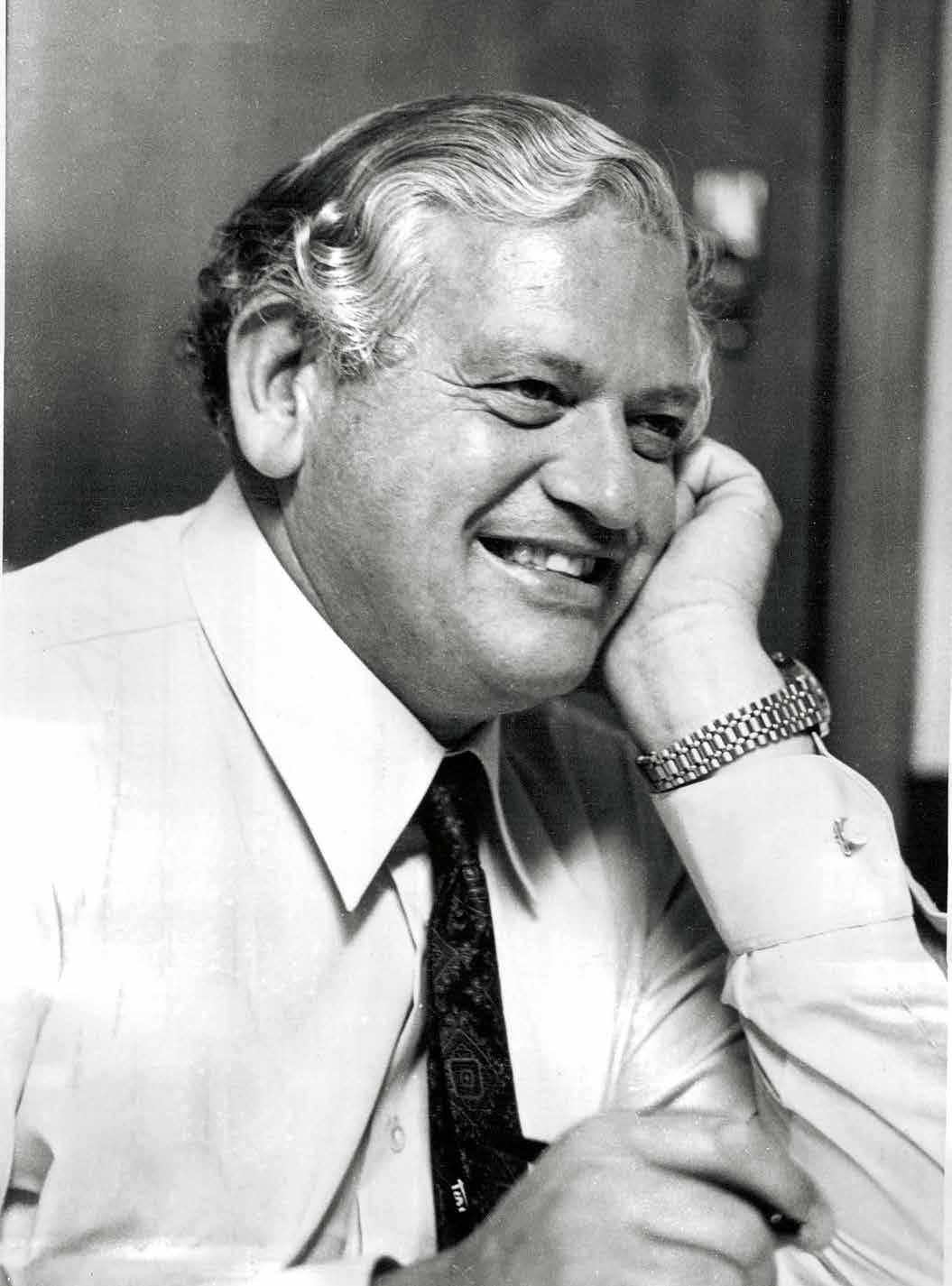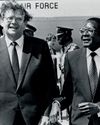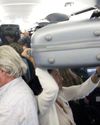Another country

Norman Kirk always was a man in hurry. He left school at 12. He worked on the railways, on the ferries, in a dairy factory and at the Firestone factory in Christchurch. He built his own house in Kaiapoi; he scoured the shelves of the local library.
In 1953, aged 30, he became the youngest mayor in the country when he won the Kaiapoi local elections. Four years later, he won the marginal seat of Lyttelton for the Labour Party, and in 1965, successfully contested the party leadership.
By 1972, he had lost weight, bought a better-fitting suit and grown out his short back and sides. He visited the small towns of New Zealand, winning the hearts and votes of "the little people of the country", he later said, "the average families, the people who work in the factories and the farms, the manufacturers".
In November that year, this large (over 1.8m tall) working-class man swept Labour into power after 12 years of National Party leadership. Over the next 90 weeks, writes Denis Welch in We Need to Talk About Norman: New Zealand's Lost Leader, he tore into the business of government "as if there was no tomorrow". He pivoted the country away from Britain and the US to face Asia and the Pacific. He introduced policies that catered to people in the regions, to pensioners, pacifists, young people (almost a quarter of a million people voted for the first time in 1972) and environmentalists.
But there really was no tomorrow. Kirk's heart was playing up. While visiting India as prime minister, he had what appears to have been a stroke. What was almost certainly a heart turn came at the South Pacific Forum in Rarotonga in March 1974.
Back in New Zealand, he suffered a blood clot in his lung following an ill-advised double varicose vein operation. By the time he was admitted to the Home of Compassion in Wellington in late August 1974, his heart was enlarged by about 50%, only a third of one lung was working and his liver was swollen.
Bu hikaye New Zealand Listener dergisinin July 8 - 14, 2023 sayısından alınmıştır.
Start your 7-day Magzter GOLD free trial to access thousands of curated premium stories, and 9,500+ magazines and newspapers.
Already a subscriber ? Giriş Yap
Bu hikaye New Zealand Listener dergisinin July 8 - 14, 2023 sayısından alınmıştır.
Start your 7-day Magzter GOLD free trial to access thousands of curated premium stories, and 9,500+ magazines and newspapers.
Already a subscriber? Giriş Yap

Behind the curtain
Jacinda Ardern's memoir lets us into the mind of a PM under crisis, but says less on whether she made right calls elsewhere.

Learning to swim
At 80, one of our most celebrated authors, Witi Ihimaera, threw himself in the deep end: a year-long commitment to a full-time Māori language immersion class.

Wing and a prayer
It was a winter Sunday in 1983 above a seething Wellington sea when Robert Muldoon glanced up from The Economist magazine.

The new old thing
Music from a pair of 60-somethings proves as vital as ever.

Love my way
The new series of Brokenwood Mysteries kicks off with an obsessed fan and a certain doctor living out his pop-star fantasies.

Defying gravity
EM Forster appears never to have seen a flying fish, but if he had, he might have recognised the way they inhabit two worlds. BY MATT VANCE

Lest we forget
In 1975, Frances Palmer was in Vietnam dealing with the fallout of war. Fifty years on, she asks why the lessons of war have still not been learnt.

Political overreach
The courts and judges have come in for criticism of late. Roger Partridge of the New Zealand Initiative was critical late last year of recent decisions of the Supreme Court in a lengthy paper entitled “Who makes the law?” - the obvious answer being Parliament.

Speed rules
All over Auckland, on more than 1500 local streets, new signs have been appearing.

Transparency in transit
Two recent court rulings in Europe practically caused oxygen masks to appear before air travellers, such was the shock they caused.
